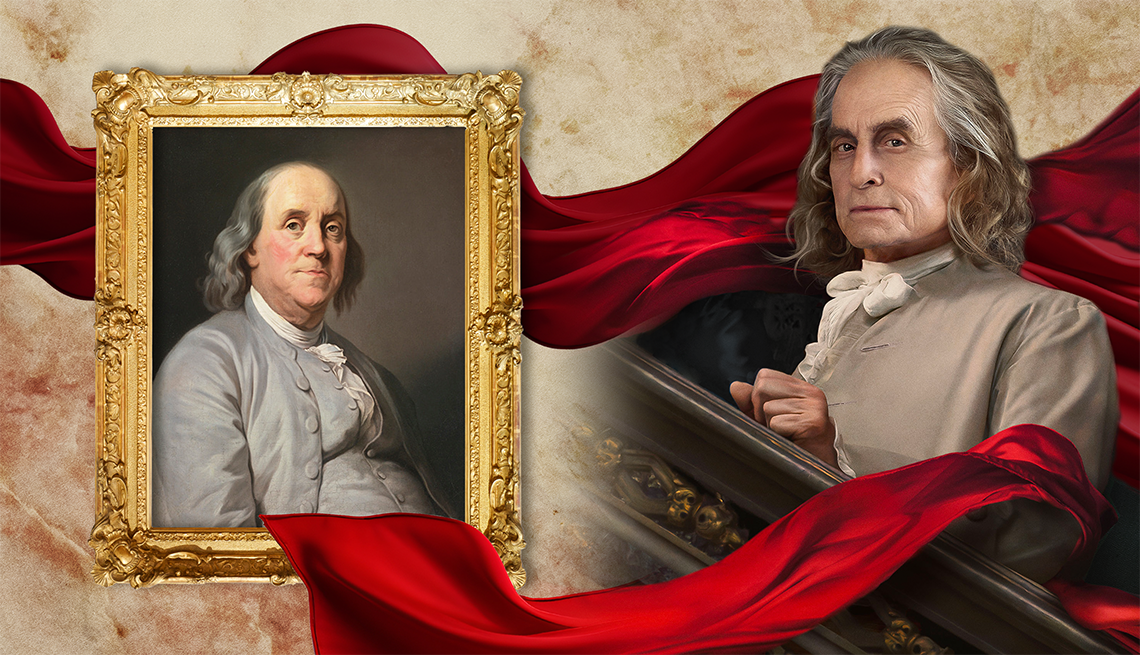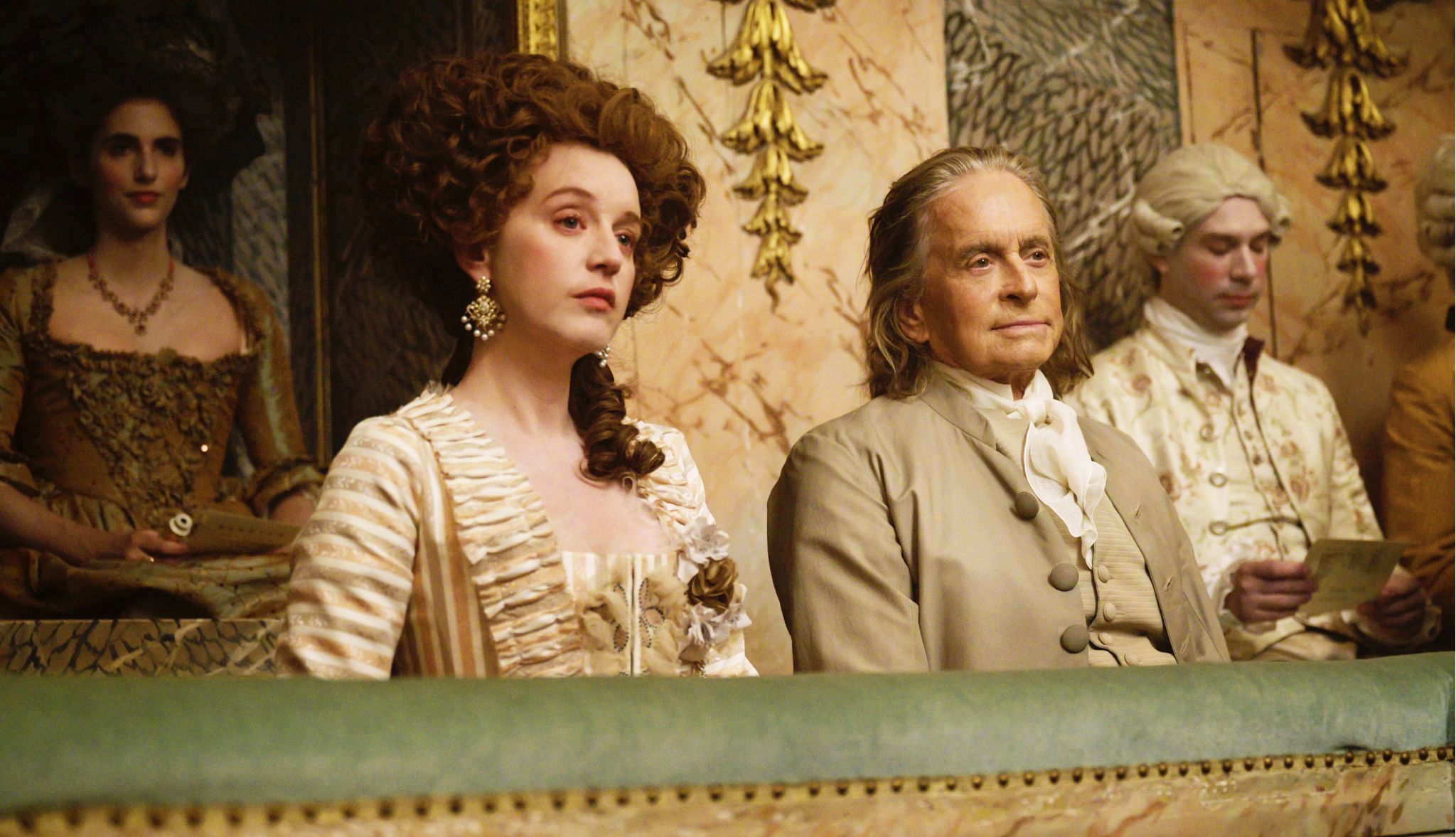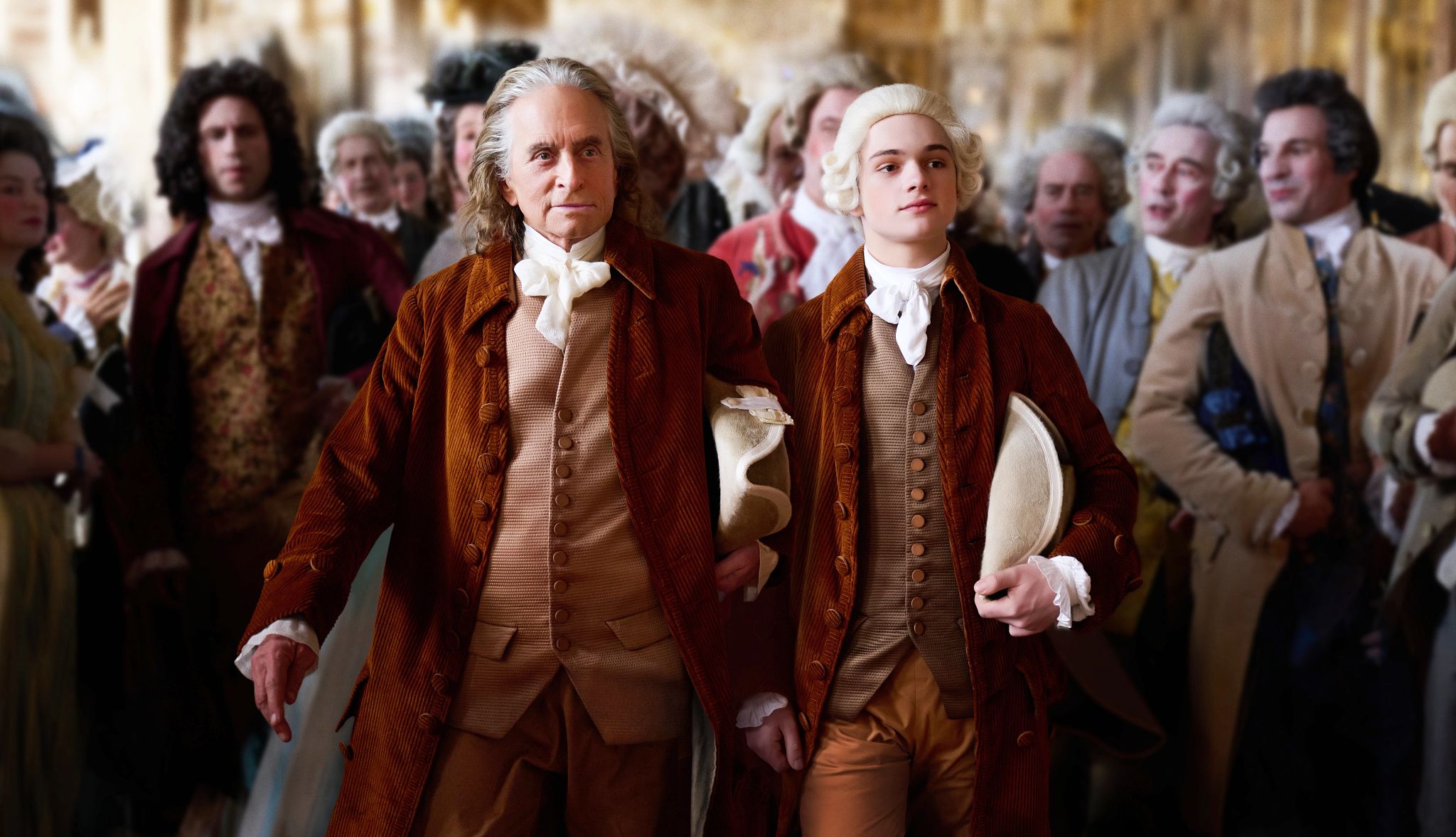AARP Hearing Center


Apple TV’s limited series Franklin, based on Stacy Schiff’s 2005 bestseller A Great Improvisation: Franklin, France and the Birth of America, follows Benjamin Franklin from 1776 to 1783, when he convinced the king to fund the (very anti-king) American Revolution, the cost of which helped spark the French Revolution. That choice eventually cost the king his head. Here’s what’s fact and fiction in Franklin.
Franklin is depicted as the 18th-century equivalent of a movie star
That’s absolutely true. In 1776, nobody in Europe knew George Washington, Thomas Jefferson or Alexander Hamilton, but Franklin was far and away the most famous American. You discover electricity, you light up the world.
“His reputation was more universal than that of Leibniz or Newton, Frederick or Voltaire, and his character more beloved and esteemed than any,” said fellow founding father John Adams (played in Franklin by Ray Donovan’s Eddie Marsan, 55). “They have it in their heads that I invented electricity,” says Michael Douglas in Franklin, besieged by fans. “Who am I to dissuade them?” Maybe not literally what he said, but it captures the situation.
There were other American diplomats in Paris then, and Ken Burns might have given them more scenes than they get here. But it’s not all that inaccurate to let Franklin hog the spotlight.
France looks authentically French
The show, mostly shot in Paris, has an eye for historical accuracy and is sumptuously designed. The costumes especially give Bridgerton or The Gilded Age a run for their money. Many scenes look lit by candlelight, as they were — Franklin’s key and kite hadn’t yet led to light bulbs.


But Douglas looks wrong
The popular image of Franklin has long been as a grandfatherly, charming man with a bit of a belly and a receding hairline. That’s not what we get here. Douglas, 79, doesn’t look like Franklin, who was 70 when he went to Paris in 1776 and 79 when he left. He looks younger than Franklin’s portraits, has a headful of hair and has no paunch or Pennsylvania accent. He decided against prosthetics and hours in makeup daily. What we get is more like Michael Douglas playing Sandy Kominsky (the tart-tongued acting coach from the Netflix show The Kominsky Method) playing Ben Franklin. This Franklin is tough and acerbic, not folksy. It’s easier to imagine him going toe-to-toe with French and British diplomats than charming France (and its ladies) with his wit and jovial personality. Douglas is at his best (and most accurate) when Franklin has to be prickly rather than avuncular.
Don't miss this: Michael Douglas on Playing Benjamin Franklin: ‘I Just Wanted to See How I Looked in Tights’ on AARP Members Only Access































































More From AARP
How Accurate Is the Lincoln Assassination Miniseries ‘Manhunt’?
Here’s everything you need to know before watching the killer thriller
7 Quick Questions for Lisa Ann Walter
Actress shines as street-smart ‘Abbott Elementary’ teacher Melissa Schemmenti
What You Need to Know About ‘The Jinx — Part Two’
Get the facts about the Robert Durst true-crime doc
The 7 Sexiest TV Dramas About Royals
Watch Julianne Moore’s ‘Mary & George’ and these steamy series
Recommended for You